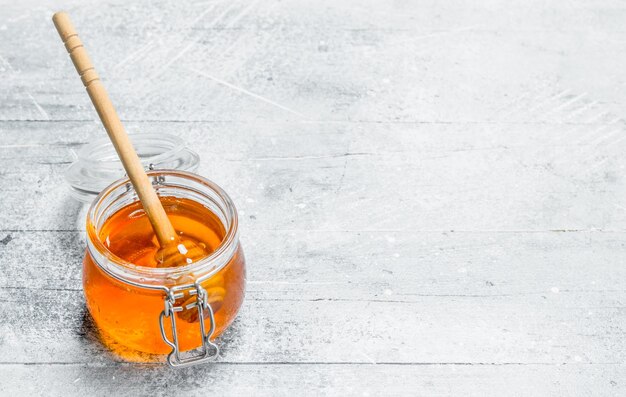Your Guide to Is Honey Ok For Diabetics
What You Get:
Free Guide
Free, helpful information about Diabetes FAQ and related Is Honey Ok For Diabetics topics.
Helpful Information
Get clear and easy-to-understand details about Is Honey Ok For Diabetics topics and resources.
Personalized Offers
Answer a few optional questions to receive offers or information related to Diabetes FAQ. The survey is optional and not required to access your free guide.
Is Honey a Safe Sweet Treat for People with Diabetes?
Navigating the world of food choices can be challenging for individuals managing diabetes. Among the many questions they face, one common query is about the sweetness of honey. Is honey safe for diabetics, or should it be avoided like many other sugars? Let's dive into the details and clarify how honey fits—or doesn't fit—into a diabetic diet.
Understanding Honey and Its Composition
Honey is a natural sweetener made by bees using nectar from flowers. It contains about 30% glucose, 40% fructose, and 20% water, along with trace amounts of vitamins, minerals, and antioxidants. This mix gives honey a slightly different impact on blood sugar levels than table sugar, which is roughly half glucose and half fructose.
Honey's Impact on Blood Sugar
For diabetics, the key concern with any food is its glycemic index (GI)—a measure of how quickly a food raises blood sugar levels. Honey's GI can vary from 35 to 58, depending on its source. This range places it sometimes lower than table sugar's average GI of 65. However, just because honey might raise blood sugar more slowly, this doesn't make it free of risks.
Considerations for Diabetics
- Portion control is vital. Even though honey has beneficial compounds, consuming it in large amounts can still result in significant blood sugar spikes.
- Always consult a healthcare provider before making honey a regular part of your diet.
- Monitor your blood sugar levels closely to see how your body reacts to honey.
Comparing Honey with Other Sugar Alternatives
For those seeking alternatives, a range of low-calorie and non-nutritive sweeteners might be preferable. Options like stevia, erythritol, and monk fruit have little to no impact on blood glucose levels and are often recommended for diabetics.
Making Informed Food Choices
It’s crucial for diabetics to understand the broader picture of managing their condition. Effective diabetes management often involves more than just dietary provisions. There are a variety of programs and resources available to support individuals not just in dietary choices, but financially and educationally as well.
- Nutrition Education Programs: Many local organizations offer classes and support groups for managing diabetes through diet.
- Health Insurance Coverage: Check if your plan covers nutritional counseling or diabetes management classes.
- Financial Assistance: Some government programs provide support for purchasing healthier food options.
Supporting Your Diabetes Journey
Managing diabetes extends beyond dietary adjustments; it encompasses lifestyle changes and sometimes financial strategies. Here’s a handy list of resources and programs that could help:
- 📈 Education Grants: Seek opportunities to learn more about nutrition and diabetes management.
- 💸 Government Aid: Programs that might cover diabetes-related nutritional supplements or insulin.
- 🏥 Healthcare Access: Look into subsidies for medical visits and consultations with dietitians.
- 📊 Financial Literacy Classes: Understand how to better manage healthcare costs and prioritize spending while managing diabetic care.
While honey can be part of a diabetic-friendly diet, it must be used mindfully and with consideration of its impact on blood sugar levels. Empower yourself with knowledge, utilize available resources, and consult healthcare professionals to maintain a balanced approach to diabetic health management.
What You Get:
Free Diabetes FAQ Guide
Free, helpful information about Is Honey Ok For Diabetics and related resources.

Helpful Information
Get clear, easy-to-understand details about Is Honey Ok For Diabetics topics.

Optional Personalized Offers
Answer a few optional questions to see offers or information related to Diabetes FAQ. Participation is not required to get your free guide.


